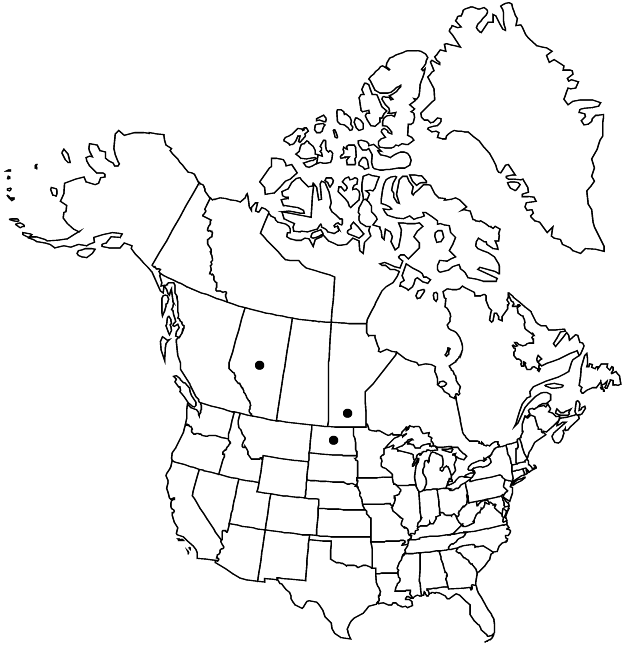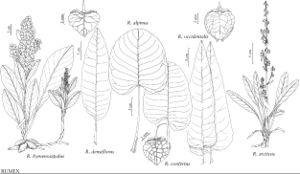Difference between revisions of "Rumex confertus"
Enum. Pl., 397. 1809.
FNA>Volume Importer |
FNA>Volume Importer |
||
| Line 27: | Line 27: | ||
|elevation=300-700 m | |elevation=300-700 m | ||
|distribution=Alta.;Man.;N.Dak.;e;ec Europe;w Asia (the Caucasus;Siberia);introduced elsewhere. | |distribution=Alta.;Man.;N.Dak.;e;ec Europe;w Asia (the Caucasus;Siberia);introduced elsewhere. | ||
| − | |discussion=<p>Rumex confertus was placed in subsect. Conferti Rechinger f. This species is common and ecologically successful in central and eastern Europe; it may be expected elsewhere in temperate regions of North America.</p> | + | |discussion=<p><i>Rumex confertus</i> was placed in subsect. Conferti Rechinger f. This species is common and ecologically successful in central and eastern Europe; it may be expected elsewhere in temperate regions of North America.</p> |
|tables= | |tables= | ||
|references= | |references= | ||
| Line 52: | Line 52: | ||
|publication year=1809 | |publication year=1809 | ||
|special status= | |special status= | ||
| − | |source xml=https://jpend@bitbucket.org/aafc-mbb/fna-data-curation.git/src/ | + | |source xml=https://jpend@bitbucket.org/aafc-mbb/fna-data-curation.git/src/8f726806613d60c220dc4493de13607dd3150896/coarse_grained_fna_xml/V5/V5_1062.xml |
|subfamily=Polygonaceae subfam. Polygonoideae | |subfamily=Polygonaceae subfam. Polygonoideae | ||
|genus=Rumex | |genus=Rumex | ||
Revision as of 17:35, 18 September 2019
Plants perennial, glabrous or weakly papillose-pubescent especially when young, with fusiform, vertical to oblique rootstock or short rhizomes. Stems erect, branched above middle, 50–100(–130) cm. Leaves: ocrea mostly deciduous or rarely partially persistent at maturity; blade ovate-triangular, broadly ovate, or ovate-elliptic, 20–30 × 15–25 cm, base deeply and broadly cordate, margins entire to obscurely repand, usually slightly crisped or undulate, apex obtuse to subacute. Inflorescences terminal, occupying distal 1/2 of stem (branches often slightly arcuate at base), rather dense, widely paniculate. Pedicels articulated in proximal 1/3, filiform, 4–10 mm, articulation distinctly swollen. Flowers 15–30 in whorls; inner tepals orbiculate-reniform or broadly scutate, 6–9 × 6–11 mm, as long as wide or nearly so, base cordate to subcordate, margins entire or subentire, occasionally irregularly erose near base, apex abruptly acute to acute; tubercles usually 1, small, 1–2 mm, normally less than 2 times as wide as inner tepals, rarely absent or indistinct. Achenes reddish brown, 3–3.5 × 1.7–2.5 mm. 2n =40.
Phenology: Flowering late spring–summer.
Habitat: Roadsides, waste places, meadows, river valleys
Elevation: 300-700 m
Distribution

Alta., Man., N.Dak., e, ec Europe, w Asia (the Caucasus, Siberia), introduced elsewhere.
Discussion
Rumex confertus was placed in subsect. Conferti Rechinger f. This species is common and ecologically successful in central and eastern Europe; it may be expected elsewhere in temperate regions of North America.
Selected References
None.
